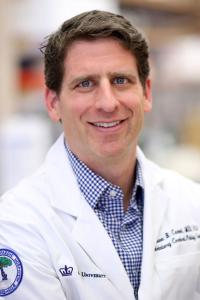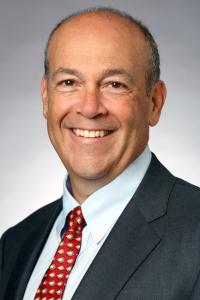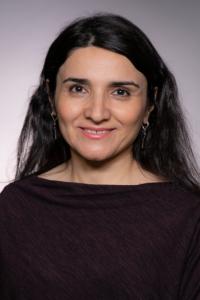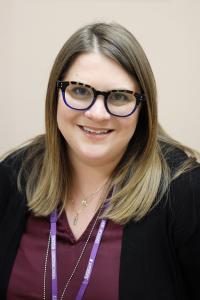Weinberg Family Cerebral Palsy Center Joins the Department of Neurology
Integration to enhance synergies between the CP Center's multidisciplinary providers and research programs
The Weinberg Family Cerebral Palsy Center (CP Center), dedicated to improving the quality of life for families and individuals living with cerebral palsy, is joining the Columbia University Vagelos College of Physicians and Surgeons Department of Neurology at NewYork-Presbyterian/Columbia University Irving Medical Center. This integration will help advance the CP Center’s mission, by strengthening our multidisciplinary care and providing a vibrant environment for our laboratory and clinical research programs.

Dr. Jason Carmel and Dr. Richard Mayeux
”We are delighted that the CP Center will join the Department of Neurology,” shared Weinberg Family CP Center Executive Director, Jason Carmel, MD, PhD. “This will strengthen our multidisciplinary care, which was initiated in Orthopedics and is closely coordinated with Rehabilitation Medicine, Primary Care, and Psychiatry, and will now collaborate more naturally with Neurology as well. It will also strengthen the research conducted by the CP Center into brain injury and repair, as it is well aligned with the research activity in Neurology. The opportunities for collaboration and sharing knowledge are very exciting."
William N. Levine, MD, Chair of the Department of Orthopedic Surgery, championed the move. “CP is a neurological condition requiring a core care team from orthopedics, neurology, and rehabilitation medicine. In the decade the CP Center operated within Orthopedics, it has evolved into a truly multidisciplinary medical home, and this new alignment will strengthen the teamwork in the Center,” said Dr. Levine. “Forging a closer relationship with Neurology allows our Orthopedics specialists to provide better care for children and adults with CP and related disorders through collaboration.”
The administrative shift will not change how patients receive care. The CP Center remains on the 8th floor of the New York-Presbyterian Morgan Stanley Children’s Hospital within the Division of Pediatric Orthopedics. This allows the CP Center to maintain its strong connection with Orthopedics and commitment to continuity of patient care and access. The CP Center care team also remains unchanged, led by Dr. Carmel (Neurology), Hana Azizi, MD (Physical Medicine & Rehabilitation), Joshua E. Hyman, MD (Orthopedics), and Jessica Dodge, MD (Psychiatry).
As part of this integration, the CP Center’s basic science Movement Recovery Laboratory will relocate to a space adjacent to other Neurology laboratories that seek to restore neurological function. In addition, a new clinical research laboratory will be established to translate basic science advances into clinical trials for people with CP. “As a physician-scientist, I am particularly excited to be able to test new therapies in a state-of-the-art human laboratory that will combine new techniques in brain and spinal cord electrical stimulation with robotic therapy,” added Dr. Carmel, who is also the director of the Movement Recovery Laboratory. “This will enable us to test the electrical stimulation therapies we are developing in the laboratory in a clinical setting.”
Under the leadership of Chairman Richard P. Mayeux, MD, MSc, the Department of Neurology is one of the largest academic neurology programs in the nation, with more than 80,000 patient visits annually across the full spectrum of neurological disorders. Many of these patients join clinical trials offered as part of the department’s groundbreaking research program, which currently ranks #3 in the nation in NIH-funded research. This aligns closely with the CP Center's focus on research to improve the quality of life for CP patients and their families.
“The Department of Neurology is pleased to welcome the Weinberg Family Cerebral Palsy Center into our dynamic community of clinicians, physician-scientists, and basic and translational investigators,” shared Dr. Mayeux. “Having Dr. Carmel and his team join our collaborative research environment, to freely engage with others who have dedicated their careers to understanding neurological disorders across the lifespan, will only strengthen and enhance the overall quality of our research program. Those that stand to benefit the most are patients, which is always our primary aim.”



